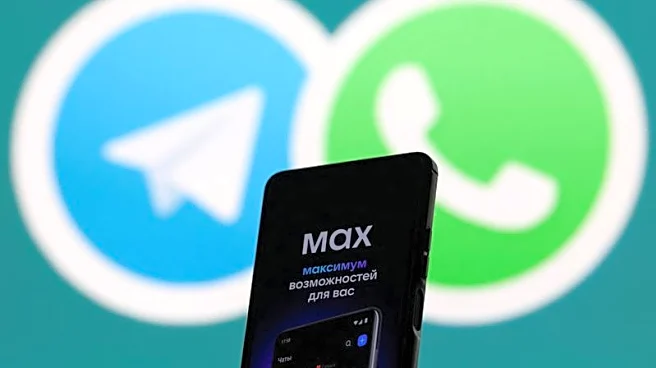(Reuters) -Russia published a list of locally developed social media, ride-hailing and other apps that it said would keep working during its mobile internet shutdowns - blackouts that have often been ordered
to disrupt Ukrainian drone attacks.
The list issued on Friday included online government services, marketplaces, the Mir electronic payment system and state-backed messenger MAX. It omitted rival foreign services including Meta Platforms' WhatsApp.
The Digital Development Ministry said it had a "special technical solution" to let local apps keep going. "This measure will reduce the inconvenience caused to citizens by mobile internet shutdowns necessary to ensure security," it added.
It made no mention of Ukraine or drones. Governors from Russian border regions have regularly said blackouts were needed to disrupt assaults that use the internet to navigate to their targets.
Russia has also been increasingly keen to promote home-grown internet services and increase its control over the local online space.
It has restricted foreign apps, part of a broader clash between Moscow and foreign tech platforms that has intensified since the onset of the war in Ukraine in 2022.
Online monitoring services reported an increase in Russian internet users complaining about poor WhatsApp connectivity and periodic mobile outages this summer.
The ministry said it had compiled its list by identifying the "most popular and socially significant Russian services and websites".
Its focus on local apps left out Alphabet's YouTube and also WhatsApp, which was used by 97.6 million people in Russia in July, according to Mediascope data.
Second in those rankings, with 90.9 million users, was Telegram, a Dubai-based company founded by Russian-born Pavel Durov that was also not on the government list.
The third-placed VK Messenger, an offering from state-controlled tech company VK, reached 16.7 million people, according to the data.
MAX, which was also developed by VK and now comes pre-installed on all mobile phones and tablets sold in Russia, said this week it had 30 million users.
(Reporting by Lucy Papachristou and Gleb Stolyarov' Editing by Andrew Heavens)









